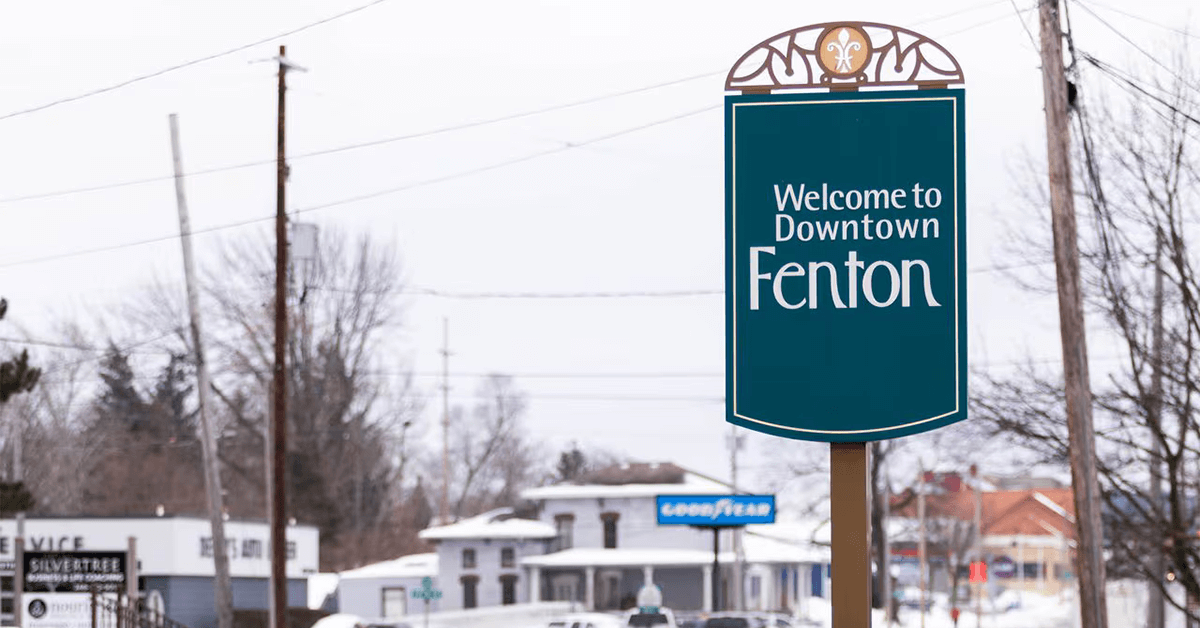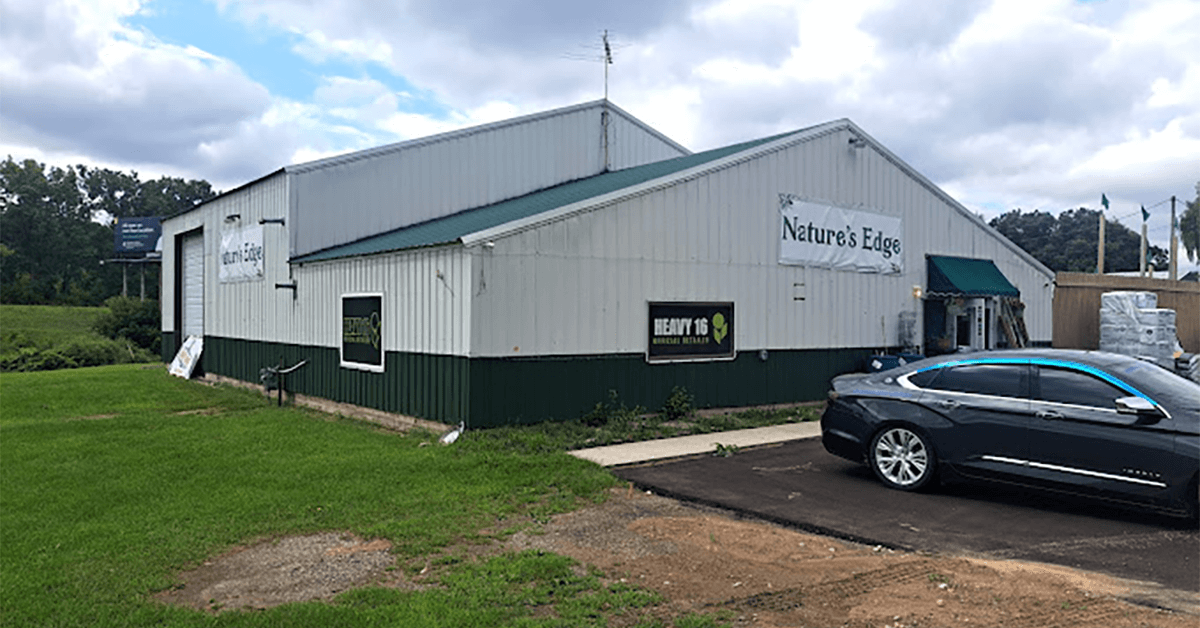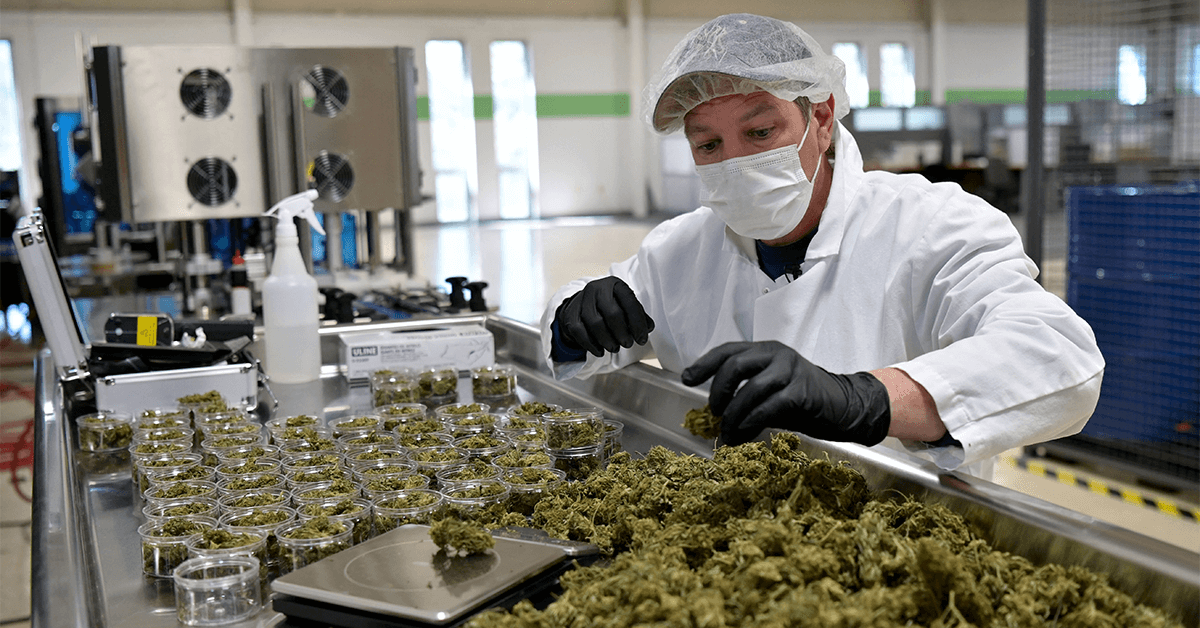Bronson City Council Considers Introduction of Recreational Cannabis Businesses

Bronson, Michigan, continues to deliberate on the possibility of allowing businesses dealing in recreational cannabis within city limits. The matter was a focal point of discussion at the recent Bronson City Council meeting held last Monday.
During the meeting, Mayor Matt Watkins, addressing City Manager Brandon Mersman, highlighted the potential of recreational cannabis businesses as a revenue source. However, he emphasized the necessity for further information to aid community understanding and decision-making.
This isn't the first time the topic has come up for discussion; nearly a year ago, the City Council conducted a public hearing that captured diverse community perspectives on the issue. The ongoing deliberations follow the statewide approval of recreational cannabis in November 2018. Despite this approval, Bronson City Council opted out of the law two months after its passage, deciding to wait until Michigan established clear regulations for the industry. It's important to note that communities have the flexibility to opt in at any time, permitting them to authorize and regulate local businesses that sell recreational cannabis.
Michigan Cannabis Sales Set New Record in March

Michigan's cannabis industry continued its impressive growth trajectory in March, setting a new monthly sales record. Total sales for the month reached $288.8 million, a 10.6% increase from February and a 15.7% rise from the same period last year, according to data from the Michigan Cannabis Regulatory Agency. This growth was noted on a per-day basis as well, with a 3.5% sequential increase in sales.
Breaking down the sales figures, adult-use cannabis sales showed a robust year-over-year increase of 19.6%, amounting to $258.9 million for March, which also marked a 10.8% sequential rise. Conversely, medical cannabis sales have seen a significant decline, plummeting 79.1% from the previous year to just $2.1 million, and decreasing 6.0% from the month prior.
The Agency also provided detailed breakdowns by category, including pricing details for both medical and adult-use cannabis. Notably, the price for adult-use flower per pound decreased by 1.3% from the previous month to $1,451, although this still represents a 4.4% increase from last year.
Overall, Michigan's cannabis market has shown remarkable growth over recent years, with sales surging 82.1% in 2021 to $1.79 billion, and continuing to grow by 27.9% in 2022 to $2.29 billion, and by 33.3% to $3.06 billion in 2023. The market is expected to maintain this upward momentum in 2024, having already grown by 17.7% so far.
Contributing factors to this growth include the addition of new dispensaries, with the Cannabis Regulatory Agency approving 31 new dispensary licenses early this year. As of February, Michigan boasts 769 active dispensary licenses. This expansion is significant as fewer than 10% of Michigan's 1,773 cities, villages, and townships currently allow cannabis sales, suggesting potential for further market expansion if more localities opt-in.
Despite the booming adult-use market, medical cannabis sales continue to decline. This decline is partly attributed to the lower cost of adult-use cannabis, which is approximately $10 per ounce cheaper than its medical counterpart, diminishing the tax savings that medical cannabis once offered. Additionally, the high cost of renewing medical licenses has led many dispensaries to forgo them.
Looking forward, while Michigan's cannabis industry shows no signs of saturation, it faces potential challenges from neighboring Ohio's emerging legal market, which could impact sales dynamics, particularly near the border.
Fenton Debates Pros and Cons of Recreational Cannabis Establishments

Fenton City Hall is actively seeking community input on the potential authorization of recreational cannabis establishments within its boundaries. Two public hearings have been scheduled to facilitate this dialogue: the first on Monday, April 15th, and the second on Wednesday, April 17th, both at 7 p.m. These sessions will be held at the Fenton City Hall, located at 301 S. Leroy St.
The focus of these meetings will be to collect insights, opinions, and information from residents regarding the prospect of cannabis businesses operating in Fenton and the appropriate regulatory measures to be considered. A notice about the public meetings highlighted the importance of community feedback in shaping the city's approach to this issue.
Fenton's City Manager, Lynn Markland, emphasized that the hearings provide a crucial opportunity for residents to express their positions—whether in support or opposition—to the city council. "The city council is eager to hear all perspectives as they deliberate on this matter," Markland commented.
In 2023, local governments in Michigan benefited significantly from cannabis-related activities, receiving a combined total of $87 million in tax revenues from marijuana sales. While acknowledging the financial benefits, Markland clarified that Fenton is not looking to rely on cannabis sales tax revenue as a primary financial resource. "We are not considering recreational marijuana sales as a core component of our fiscal strategy. Instead, we are assessing whether a dispensary would serve the best interests of our community," he explained.
Community Tips Lead to Raid on Oakfield Vape and Cannabis Shop

In Oakfield Township, Michigan, a local business named Nature's Edge, previously operating as Greenville Hydroponics, has come under scrutiny for allegedly selling nicotine and cannabis products to minors. Following community complaints and subsequent investigations by the Kent County Sheriff's Office (KCSO), the business was raided, resulting in significant seizures.
The Kent Area Narcotics Enforcement Team executed three search warrants at Nature's Edge last month. The raid yielded 3,200 grams of cannabis, 4,100 nicotine vape pens, two handguns, and $39,500 in cash. This operation stemmed from ongoing concerns within the community about the accessibility of restricted products to underage individuals.
The suspicions were initially confirmed in May 2023 when a KCSO decoy, posing as a minor, successfully purchased a nicotine vape pen from the establishment. This incident led to the business receiving a citation for selling to an underage customer.
Further investigations were propelled by reports from a school resource officer who received information about the business allegedly selling cannabis to local students. This tip prompted a more detailed investigation by the narcotics team, culminating in last month's raids.
The Kent County Sheriff's Office has expressed gratitude towards the community for its vigilance and cooperation, emphasizing the importance of community involvement in maintaining public safety. The investigation into the alleged sales of nicotine and cannabis to minors is still active, with the authorities seeking to determine the full extent of the violations and enforce appropriate legal actions.
No Early Release for Rick Johnson in Michigan Cannabis Licensing Scandal

Former Michigan House Speaker Rick Johnson will continue serving his 55-month prison sentence without any reduction or early release, as ruled by U.S. District Judge Jane Beckering. Johnson, who was implicated in a major public corruption scandal involving the state's cannabis industry, sought to have his sentence shortened based on changes to federal sentencing guidelines. However, the judge determined that Johnson had already benefited from these guidelines at the time of his sentencing and did not merit further leniency.
Johnson, a 71-year-old Republican from LeRoy, has been incarcerated at a minimum-security federal prison camp in Duluth, Minnesota, since December. He requested that his sentence be reduced to 41 months, with the remainder to be served under home confinement starting in March 2025. This plea was denied, with Judge Beckering emphasizing that the relief Johnson sought was already granted when he was initially sentenced.
This case stems from Johnson's tenure as chairman of the state's medical marijuana licensing board from May 2017 to April 2019. During this period, Johnson accepted over $110,000 in bribes from cannabis industry lobbyists and a businessman, seeking to influence the licensing process in favor of certain businesses. His corrupt practices, which Judge Beckering described as an "unfettered abuse of power," involved taking cash payments, enjoying complimentary meals, and engaging in illicit activities, including liaisons with a sex worker.
The scandal represents one of the largest instances of public corruption in Michigan's capital in the last 30 years. In addition to Johnson, other key figures involved received prison sentences: businessman John Dawood Dalaly received 28 months, while lobbyists Brian Pierce and Vince Brown were sentenced to two years and 20 months, respectively.
Johnson's projected release date remains September 2027, maintaining the original terms of his sentence.
Michigan Leads the Way in Cannabis Industry Job Growth

In the burgeoning cannabis industry within the United States, Michigan emerges as a pivotal player amid nationwide growth and diversification. The industry now underpins over 440,000 full-time positions across the country, representing a near 5% growth in the last year alone. This progress, while more restrained compared to the rapid expansions of earlier years, underscores the industry's robustness and its significant contribution to the economy. Despite a temporary lull in job growth observed between 2022 and 2023, the sector has shown remarkable resilience, bouncing back with vigor. This upward trend in employment is particularly pronounced in states like Michigan, where burgeoning sales and the establishment of adult-use cannabis markets have catalyzed a substantial rise in job creation.
While Michigan thrives, other long-established cannabis markets such as Colorado, Washington, and California have encountered setbacks, including job reductions. These challenges are largely due to market saturation, diminished cannabis tourism, and regulatory complications, showcasing the nuanced dynamics of the cannabis sector across different regions.
The job landscape within the cannabis sector is diverse, spanning from cultivation and retail positions to executive roles, all offering competitive compensation. This range not only signifies the sector's growth but also its maturation, reflecting an industry evolving in complexity and scope. Furthermore, projections suggest a buoyant future, with anticipations of renewed job growth and a significant uptick in cannabis revenue by 2035. Such forecasts underscore the confidence in the long-term sustainability and economic influence of the cannabis industry.
The industry's progression is also mirrored in the broader discourse around cannabis legalization and regulation at the federal level, as evidenced by initiatives like the U.S. Census Bureau's tracking of cannabis business activities and tax revenues. Moreover, conversations around unionization and workers' rights within the sector highlight the extensive social and economic ramifications of cannabis legalization.
With job growth as a barometer for its economic impact, the cannabis industry stands at a crossroads of opportunity and challenge. While hurdles persist in more mature markets grappling with oversupply and increased competition, the overarching trend leans towards growth and professionalization. As the cannabis industry continues to evolve, it is set to significantly influence the U.S. economic landscape and labor market, particularly in states like Michigan, which are at the forefront of this transformation.


 Helpful Links
Helpful Links